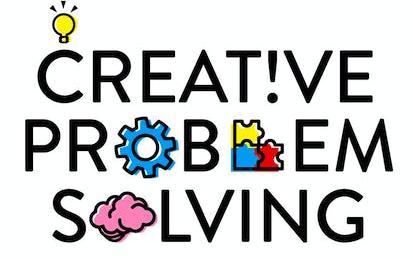

Our Courses
Firm Level Economics: Consumer and Producer Behavior
All goods and services are subject to scarcity at some level, which requires that society develop some allocation mechanism to determine who gets what. Over recorded history, these allocation rules were usually command based, meaning that the king or the emperor would decide. In contemporary times, most countries have turned to market-based allocation systems. In markets, prices act as rationing devices, encouraging or discouraging production and encouraging or discouraging consumption to find an equilibrium allocation of resources.
-
Course by

-
 Self Paced
Self Paced
-
 17 hours
17 hours
-
 English
English
Firm Level Economics: Markets and Allocations
In markets, prices act as rationing devices, encouraging or discouraging production and consumption to find an equilibrium. In this course, you will learn to construct demand curves to capture consumer behavior and supply curves to capture producer behavior. The resulting equilibrium price “rations” the scarce commodity.
-
Course by

-
 Self Paced
Self Paced
-
 19 hours
19 hours
-
 English
English

Cloud Computing Applications, Part 1: Cloud Systems and Infrastructure
Welcome to the Cloud Computing Applications course, the first part of a two-course series designed to give you a comprehensive view on the world of Cloud Computing and Big Data! In this first course we cover a multitude of technologies that comprise the modern concept of cloud computing.
-
Course by

-
 Self Paced
Self Paced
-
 15 hours
15 hours
-
 English
English

Country Level Economics: Policies, Institutions, and Macroeconomic Performance
This course examines macroeconomic performance in the short and long run based on the economy’s institutional and policy environment. First, we will develop a model of macroeconomy in the short run when the price level has its own momentum and does not respond much to supply and demand forces. Then, we’ll begin analyzing the long-run equilibrium by examining the foreign exchange market. The third module examines the drivers of aggregate output in the long run and the mechanisms of adjustment from the short run to the long run.
-
Course by

-
 Self Paced
Self Paced
-
 17 hours
17 hours
-
 English
English

Introduction to Graph Theory
We invite you to a fascinating journey into Graph Theory — an area which connects the elegance of painting and the rigor of mathematics; is simple, but not unsophisticated. Graph Theory gives us, both an easy way to pictorially represent many major mathematical results, and insights into the deep theories behind them. In this online course, among other intriguing applications, we will see how GPS systems find shortest routes, how engineers design integrated circuits, how biologists assemble genomes, why a political map can always be colored using a few colors.
-
Course by

-
 Self Paced
Self Paced
-
 21 hours
21 hours
-
 English
English

Cost and Economics in Pricing Strategy
How much should you charge for your products and services? Traditionally, businesses have answered this question based on the cost to produce or provide their goods and services. This course shows you the economic factors behind pricing based on cost and the pros and cons of a cost-based pricing approach. Developed at the Darden School of Business at the University of Virginia, and led by top-ranked Darden faculty and Boston Consulting Group global pricing experts, the course provides the practical and research-based models and methods you need to set prices that maximize your profits.
-
Course by

-
 Self Paced
Self Paced
-
 12 hours
12 hours
-
 English
English
Country Level Economics: Macroeconomic Variables and Markets
This course discusses how macroeconomic variables affect individuals’ personal, professional, and public activities and lays the foundation for the analysis of the mechanisms that drive macroeconomic variables. It starts by introducing the key macroeconomic variables and explaining how they are defined and measured to interpret macroeconomic data properly.
-
Course by

-
 Self Paced
Self Paced
-
 17 hours
17 hours
-
 English
English

Business English: Finance and Economics
Do you work in finance or interact with finance professionals? Is it necessary to speak, write or understand English in your career? Follow the authentic characters in this course as they work through common business situations in finance and economics. Learn from your successes and failure, and think critically about your own communication options. After taking this course, you will be able to read and create efficient e-mails, reports, and impactful presentations with words and phrases commonly used in finance and economics.
-
Course by

-
 Self Paced
Self Paced
-
 30 hours
30 hours
-
 English
English

Introduction to Economic Theories
Wondering why economists have not predicted serious financial crises? Shocked by economic assumptions of human behavior as self-centered and focusing only on what can be measured? Asking yourself if there are no sensible economic alternatives to free markets? Then you are at the right place to learn economics! This is the first online course that teaches economics from a pluralist perspective.
-
Course by

-
 Self Paced
Self Paced
-
 41 hours
41 hours
-
 English
English

Age of Cathedrals
An introduction to some of the most astonishing architectural monuments the world has ever known—Gothic cathedrals. We shall study the art, literature, intellectual life, economics, and new social arrangements that arose in the shadow of the cathedrals and that were such an important part of the revival of cities in the twelfth and thirteenth centuries. The goal of the course is a better appreciation of the High Middle Ages, a world that is still recognizably our own.
-
Course by

-
 Self Paced
Self Paced
-
 18 hours
18 hours
-
 English
English

Politics and Economics of International Energy
Energy issues have always been important in international relations, but in recent years may have become even more important than in the past due to the widespread awareness of existing limits to energy sources and negative climate impacts. The course discusses global trends in energy consumption and production, various available scenarios for potential developments in the coming decades, the availability of oil reserves and the evolution of the oil industry. It then discusses natural gas and highlights the differences between oil and gas.
-
Course by

-
 Self Paced
Self Paced
-
 30 hours
30 hours
-
 English
English

Creative Problem Solving
This course deals directly with your ability for creativity which is a critical skill in any field. It focuses on divergent thinking, the ability to develop multiple ideas and concepts to solve problems. Through a series of creativity building exercises, short lectures, and readings, learners develop both an understanding of creativity and increase their own ability. This course will help you understand the role of creativity and innovation in your own work and in other disciplines.
-
Course by

-
 Self Paced
Self Paced
-
 14 hours
14 hours
-
 English
English
Introduction to Sustainability
This course introduces the academic approach of Sustainability and explores how today’s human societies can endure in the face of global change, ecosystem degradation and resource limitations. The course focuses on key knowledge areas of sustainability theory and practice, including population, ecosystems, global change, energy, agriculture, water, environmental economics and policy, ethics, and cultural history. This subject is of vital importance, seeking as it does to uncover the principles of the long-term welfare of all the peoples of the planet.
-
Course by

-
 Self Paced
Self Paced
-
 25 hours
25 hours
-
 English
English

Global Warming I: The Science and Modeling of Climate Change
This class describes the science of global warming and the forecast for humans’ impact on Earth’s climate. Intended for an audience without much scientific background but a healthy sense of curiosity, the class brings together insights and perspectives from physics, chemistry, biology, earth and atmospheric sciences, and even some economics—all based on a foundation of simple mathematics (algebra).
-
Course by

-
 Self Paced
Self Paced
-
 39 hours
39 hours
-
 English
English

Internet Giants: The Law and Economics of Media Platforms
This seven-week course will explore the relationship between law and technology with a strong focus on the law of the United States with some comparisons to laws around the world, especially in Europe. Tech progress is an important source of economic growth and raises broader questions about the human condition, including how culture evolves and who controls that evolution.
-
Course by

-
 60 hours
60 hours
-
 English
English

The Economics of AI
The course introduces you to cutting-edge research in the economics of AI and the implications for economic growth and labor markets. We start by analyzing the nature of intelligence and information theory. Then we connect our analysis to modeling production and technological change in economics, and how these processes are affected by AI. Next we turn to how technological change drives aggregate economic growth, covering a range of scenarios including a potential growth singularity.
-
Course by

-
 Self Paced
Self Paced
-
 28 hours
28 hours
-
 English
English
Model Thinking
We live in a complex world with diverse people, firms, and governments whose behaviors aggregate to produce novel, unexpected phenomena. We see political uprisings, market crashes, and a never ending array of social trends. How do we make sense of it? Models. Evidence shows that people who think with models consistently outperform those who don't. And, moreover people who think with lots of models outperform people who use only one. Why do models make us better thinkers?
-
Course by

-
 Self Paced
Self Paced
-
 27 hours
27 hours
-
 English
English

Energy, Environment, and Everyday Life
For a sample of what this course will include, see the video "Energy, Environment, and Everyday Life MOOC with University of Illinois Professor David Ruzic" - http://go.citl.illinois.edu/Energy-MOOC This course teaches you everything you need to know about energy, the environment, and at least a number of things in everyday life. It starts by talking about energy itself and where it comes from. This includes how much we have, who has it, who uses it, and what that all means.
-
Course by

-
 Self Paced
Self Paced
-
 47 hours
47 hours
-
 English
English

Advanced Valuation and Strategy - M&A, Private Equity, and Venture Capital
Hi and welcome to this course! Would you like to learn about the latest valuation methods that may help you to make better business decisions? Then 'Advanced Valuation and Strategy – M&A, Private Equity, and Venture Capital' by Erasmus University Rotterdam is the right course for you! This course is helpful for executives that need to value complete strategies and for all students interested in corporate finance and strategy.
-
Course by

-
 Self Paced
Self Paced
-
 16 hours
16 hours
-
 English
English

From Fossil Resources to Biomass: A Business and Economics Perspective
Learn about the basic consumer science, business, logistics, supply chain, and economic principles that are essential for a successful transition from fossil resources to renewable biomass resources in a biobased economy.
-
Course by

-
 Self Paced
Self Paced
-
 18
18
-
 English
English

Economics and Policies in a Biobased Economy
Lead your company to make the switch to biobased resources and build a profitable sustainable business. Learn how to deal with the economics and policies governing this transition and the implementation and learn how to measure the outcome.
-
Course by

-
 Self Paced
Self Paced
-
 35
35
-
 English
English

Behavioral Economics and Public Policy
This course provides a perspective to understanding decision making. It will equip the learners with tools to better understand these deep psychological processes. It will discuss the topics like loss aversion, nudges, some notions of fairness and will also deal with practical examples which will help to form strategies in real life work environment.
-
Course by

-
 Self Paced
Self Paced
-
 20
20
-
 English
English

Environmental and Natural Resources Economics
Economic analysis of agricultural problems associated with use of renewable and nonrenewable environmental and natural resources.
-
Course by

-
 Self Paced
Self Paced
-
 8
8
-
 English
English

Inglés Empresarial: Finanzas y Economía
Do you work in finance or interact with finance professionals? Is it necessary to speak, write or understand English in your career? Follow the authentic characters in this course as they work through common business situations in finance and economics. Learn from your successes and failure, and think critically about your own communication options. After taking this course, you will be able to read and create efficient e-mails, reports, and impactful presentations with words and phrases commonly used in finance and economics.
-
Course by

-
 Self Paced
Self Paced
-
 Spanish
Spanish

Policy and Management of Modern Energy Systems
Gain insight into the technology, economics, governance and management of the energy system and its current transitions to combat climate change so you can take appropriate decisions and design feasible policies.
-
Course by

-
 Self Paced
Self Paced
-
 30
30
-
 English
English



